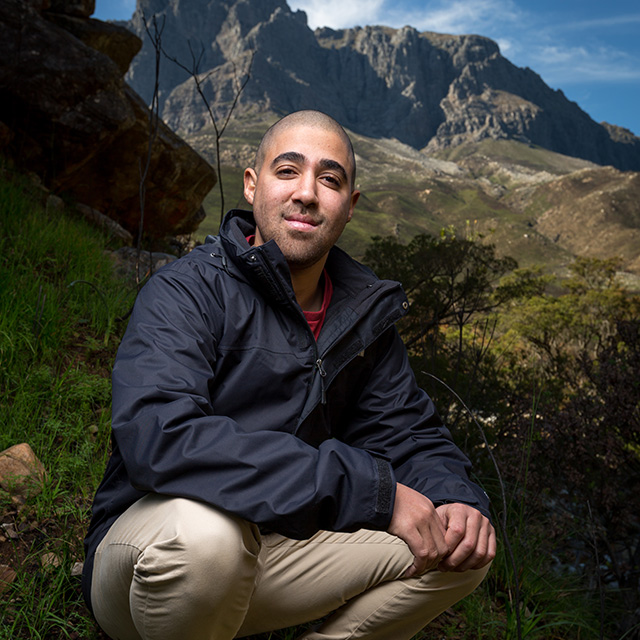
In August 2015, Dr Ethan Newman was the recipient of the National Research Foundation’s research excellence award in the category for male next-generation researchers. Prof Bruce Anderson, study leader for his honours and doctoral research, says Ethan’s keenness for biology is unrestrained. “I have never met another student with as much enthusiasm for his subject,” he says.
Yet this did not come without hard work, perseverance and commitment. Ethan says as a child he wandered for hours around the Renosterveld nearby his hometown, Wellington, collecting reptiles, insects and spiders.
But it was only in high school that his interest in plants became an overriding passion: “I was specifically interested in rare bulbs and orchids. I also had many friends at high school who were just as passionate about natural history as I was. We spent a lot of time exploring in the veld. It was during these adventures that I realised I wanted to become a botanist,” says Ethan.
He started collecting data for his honours project on the cluster Disa (Disa ferruginea) and its pollinator as an undergraduate already. The mountain pride butterfly (Aeropetes tulbaghia) is the only insect that pollinates the cluster Disa and it has very specific and localised colour preferences. This research field is important, as pollinator populations worldwide have been falling, with serious implications for food security. Scientists are also worried about similar declines in the pollinator populations of wild plants. Without these pollinators, hundreds of native plants are likely to go extinct.
Ethan often disappeared into the veld for days on end, collecting data on Table Mountain and the Langeberg Mountain in Grootvadersbosch Nature Reserve. A year after completing his honours project, the research was published as an article in the international journal Proceedings of the Royal Society B. “This was a defining moment in my career,” admits Ethan.
For his MSc, he continued with the research he started as an undergraduate. This time he focused on the berg lily (Nerine humilis), which is pollinated by the enigmatic long proboscid fly (Prosoeca longipennis). Because of his rapid research progress, he was granted a National Geographic Young Explorer’s award. In the second year of his Master’s studies, his MSc project was upgraded to a PhD.
“Today I realise how fortunate I am to be able to pursue my dreams when most of my peers have given up before they even tried. My passion for science is not something that I have acquired; it is an integral part of me.”
- By Wiida Fourie-Basson -